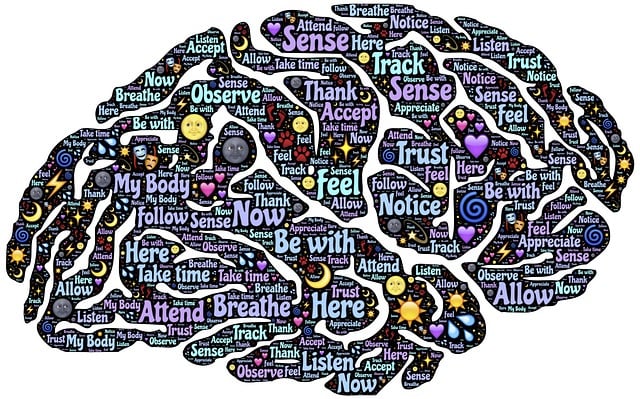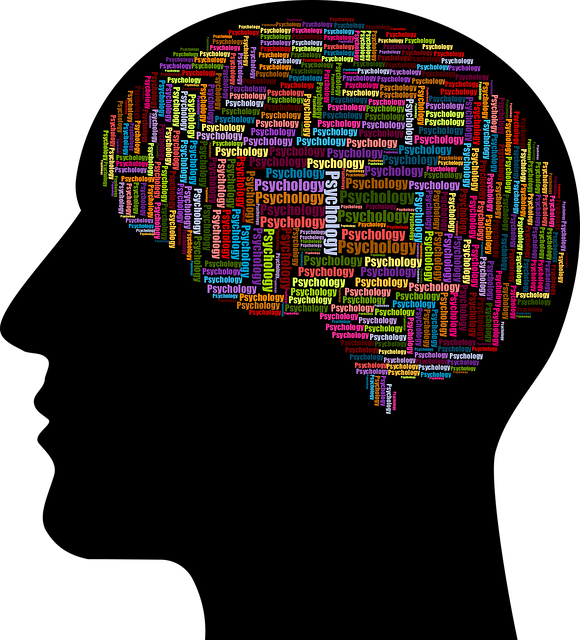Englewood Terminal Illness Therapy leverages structured settings and various data sources—patient records, clinical assessments, surveys, interviews, and online platforms—to collect rich datasets focused on mental health. Through programs like Inner Strength Development and workshops like Anxiety Relief, they gather feedback on intervention effectiveness. Advanced statistical modeling and machine learning algorithms enable precise diagnoses and personalized treatment plans. By analyzing patient responses and qualitative insights from Mental Wellness Journaling Exercises, therapists adapt their approaches. Ethical considerations, including robust data security and transparency, ensure trust and responsiveness to complex mental health needs, with future innovations aiming for a more inclusive and effective healthcare system.
Mental health data analysis is a powerful tool for understanding complex psychological phenomena. This article explores the process of collecting, analyzing, and interpreting mental health data, highlighting its potential impact on treatment approaches like those offered at Englewood Terminal Illness Therapy. We delve into various techniques used to extract meaningful insights from vast datasets, emphasizing ethical considerations and the future prospects of this burgeoning field. By understanding how data can guide therapy, professionals can offer more personalized and effective care.
- Understanding Mental Health Data: Collection and Sources
- Data Analysis Techniques for Mental Health Insights
- Interpreting Results: Implications for Englewood Terminal Illness Therapy
- Ethical Considerations and Future Directions in Mental Health Data Analysis
Understanding Mental Health Data: Collection and Sources

Understanding Mental Health Data is a pivotal step in navigating the complexities of human psychology and well-being. The collection of such data involves various methods and sources, each offering unique insights into different aspects of mental health. Engaging with Englewood Terminal Illness Therapy provides one avenue for gathering information through patient records, clinical assessments, and therapy sessions. These structured settings allow professionals to document symptoms, behaviors, and progress over time, creating a rich dataset for analysis.
Beyond therapy settings, data can stem from surveys, interviews, and online platforms dedicated to mental health awareness. Tracking changes in attitudes, beliefs, and experiences through these sources offers a broader perspective on community mental health. For instance, Inner Strength Development programs or Social Skills Training initiatives can collect valuable data on participants’ emotional growth and social interactions. Similarly, Anxiety Relief workshops might gather feedback on reduced symptoms and improved coping mechanisms, contributing to a comprehensive understanding of effective interventions.
Data Analysis Techniques for Mental Health Insights

In the realm of mental health, data analysis serves as a powerful tool for gaining valuable insights into individuals’ emotional well-being and guiding effective interventions. Techniques such as statistical modeling and machine learning algorithms enable professionals to identify patterns and trends within large datasets, facilitating more precise diagnoses and personalized treatment plans. For instance, advanced analytics can uncover correlations between specific behaviors, life events, and mental health outcomes, offering crucial information for both research and clinical practice.
At Englewood Terminal Illness Therapy, data-driven approaches play a pivotal role in delivering tailored support. By employing sophisticated analysis techniques, the team ensures that each patient receives crisis intervention guidance based on their unique needs. This personalized strategy not only enhances emotional regulation but also promotes effective Emotional Well-being Promotion Techniques. Through continuous data assessment and interpretation, professionals can adapt treatments, ensuring optimal outcomes for those seeking assistance.
Interpreting Results: Implications for Englewood Terminal Illness Therapy

Interpreting results from mental health data is a critical step in tailoring effective treatments like Englewood Terminal Illness Therapy. These insights can reveal patterns and trends within patient populations, enabling therapists to adapt their approaches. For instance, analyzing responses to Burnout Prevention Strategies for Healthcare Providers or identifying common conflict resolution techniques through narrative therapy can offer valuable guidance. By understanding the mental wellness journey of patients, therapists can design more personalized interventions.
Moreover, encouraging patients to engage in Mental Wellness Journaling Exercises can provide qualitative data, offering a glimpse into their inner experiences and challenges. This qualitative analysis complements quantitative data from surveys or assessments, creating a holistic view. Such insights can enhance therapy outcomes, ensuring that Englewood Terminal Illness Therapy remains responsive and relevant in addressing the complex needs of individuals facing terminal illnesses.
Ethical Considerations and Future Directions in Mental Health Data Analysis

As mental health data analysis and interpretation evolve, it is crucial to navigate the ethical landscape meticulously. Ensuring privacy and confidentiality of patient information is paramount, especially when dealing with sensitive topics like Englewood Terminal Illness Therapy. Robust data protection measures, including anonymization techniques and secure storage protocols, must be implemented to safeguard individuals’ identities. Furthermore, transparency in data collection methods and purposes fosters trust among participants, encouraging open-ended discussions on mental health issues.
Future directions in this field include integrating innovative approaches such as Artificial Intelligence (AI) for personalized treatment recommendations, enhancing access to Mental Wellness Coaching Programs Development, and promoting Emotional Intelligence. Additionally, focusing on Self-Care Routine Development for Better Mental Health can empower individuals to proactively manage their well-being. These advancements hold immense potential for transforming mental healthcare, ensuring a more inclusive, effective, and ethical system that meets the diverse needs of all individuals seeking support.
Mental health data analysis is a powerful tool that, when applied ethically and thoughtfully, can significantly enhance our understanding of complex human conditions. By leveraging various collection sources and sophisticated analysis techniques, we can derive valuable insights from mental health data. As demonstrated by the implications for Englewood Terminal Illness Therapy, these insights hold the potential to personalize treatments, improve patient outcomes, and revolutionize care strategies. Moving forward, continued exploration and responsible handling of mental health data will be crucial in shaping a more compassionate and effective healthcare landscape.














